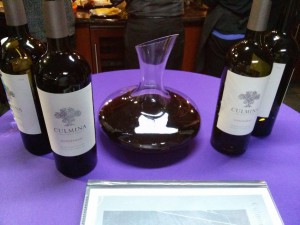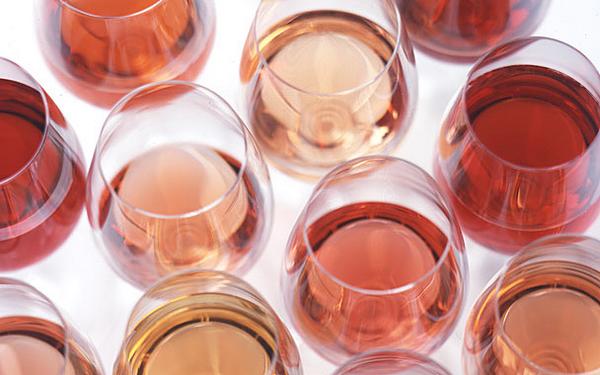It’s hard to imagine Sam Walton ever having dreamt of selling off Walmart and opening up a five-and-dime store. Or Ray Kroc divesting himself of McDonald’s so he could start all over with a food truck. But there is a growing trend among successful winery entrepreneurs who cash out their holdings and start over again from scratch.
My first experience with what seems to be a growing trend was in a visit to Long Shadows Vintners, just to the west of Walla Walla, WA. Founder Allen Shoup was well known in the wine world as CEO of Chateau Ste. Michelle, which upon his arrival in 1980 was a small, virtually unknown winery in Woodinville, just north of Seattle. He had started out in the wine business as marketing director for Gallo in Modesto, CA.
In 2002, Shoup became managing partner of Long Shadows, which would go on to build a state of the art winemaking facility and draw attention to itself by bringing on board a dazzling array of world-class winemakers to produce wines in their own style with Washington grapes. There aren’t many wineries I have enjoyed visiting more, and I have never been disappointed with the products.
Closer to home, there a are number of stories worth noting.
After Prudence and Beat Mahrer sold the popular Red Rooster Winery to what is now Peller Estates, Prudence realized how much she missed the daily interaction with customers. The Mahrers purchased another property in Naramata which now, coincidentally, sits across the road from the new Red Rooster facility (the original was purchased by investors to become Therapy Vineyards and Guesthouse. Prudence and Beat first called their small venture Ruby Tuesday, but after a legal threat came from an American restaurant chain of the same name, they changed it to Ruby Blues.
Over on Black Sage Road, one of the province’s best known red wines—Black Hills Estate Winery’s Nota Bene—is still popular, but the original owners sold out years ago. Senka and Bob Tennant had teamed up with friends Susan and Peter McCarrell to start the Black Hills winery, and limited production and seeming unlimited popularity meant that Nota Bene was a tough wine to find in those early years. After selling the business to a group of investors that includes actor Jason Priestley the Tennants purchased agricultural land in Naramata and set about starting all over again in 2008. Today, Senka makes the wines and Bob manages the vineyard and business at Terravista Vineyards. The couple seems to operate on the Keep it Simple, Stupid (KISS) plan. After making only a few wines in their time at Black Hills, their production now is limited to two white wines—Figaro and Fandango.
One of the province’s winery industry builders, Harry McWatters, wasn’t about to go gently into that good night after “retiring” as president of BC’s first estate winery, Sumac Ridge. He, along with partners that include renowned grape grower Dick Cleave, started Time Estate Winery, a highly focused endeavor that is already making its name as a quality producer of fine wine.
 Similarly, another BC legend has made a new start. Culmina Family Estate Winery is making a splash with its reds, whites and rose wines, under the guidance of Bil and Elaine Triggs and their daughter, Sarah. Triggs? Yep, none other than the co-founder of Jackson-Triggs, which became one of the best-known wine brands in the country. Culmina has brought winemaker Pascal Madevon into the fold, and it would be hard to imagine a better choice. Madevon came to Canada from Bordeaux and spent a decade developing the wonderful Osoyoos Larose premium Bordeaux blend.
Similarly, another BC legend has made a new start. Culmina Family Estate Winery is making a splash with its reds, whites and rose wines, under the guidance of Bil and Elaine Triggs and their daughter, Sarah. Triggs? Yep, none other than the co-founder of Jackson-Triggs, which became one of the best-known wine brands in the country. Culmina has brought winemaker Pascal Madevon into the fold, and it would be hard to imagine a better choice. Madevon came to Canada from Bordeaux and spent a decade developing the wonderful Osoyoos Larose premium Bordeaux blend.
 At a recent visit to Willow Park Wines and Spirits in Calgary, Triggs introduced customers to two vintages of the nicely named Hypothesis, a Merlot/Cab Sauv/Cab Franc blend. The bottles, priced at $60 each, were selling briskly, at least in part because Triggs has been a trusted wine guy for as long as most of us can remember. I think the fact that these folks, and others, have had great success, but weren’t really ready to stay out of a business that they pursued with such great success, is an indication that the wine business is like few others. It gets into one’s blood and we, as consumers, are the beneficiaries of this trend.
At a recent visit to Willow Park Wines and Spirits in Calgary, Triggs introduced customers to two vintages of the nicely named Hypothesis, a Merlot/Cab Sauv/Cab Franc blend. The bottles, priced at $60 each, were selling briskly, at least in part because Triggs has been a trusted wine guy for as long as most of us can remember. I think the fact that these folks, and others, have had great success, but weren’t really ready to stay out of a business that they pursued with such great success, is an indication that the wine business is like few others. It gets into one’s blood and we, as consumers, are the beneficiaries of this trend.


Good article Lorne on an interesting trend. I enjoyed reading it.
Cheers,
Sam